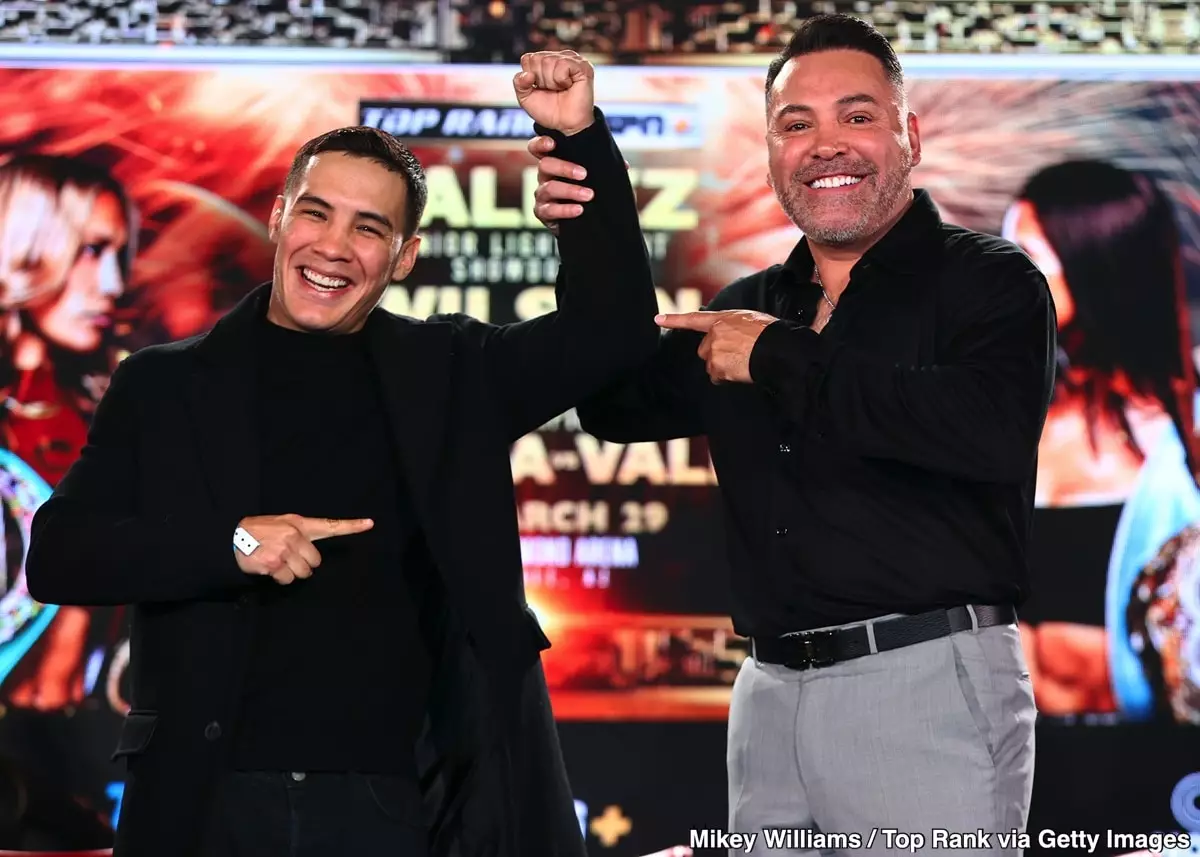BY BOXING HIT STAFF-
In the world of boxing promotion, rivalries often manifest as verbal sparring, and the ongoing feud between Oscar De La Hoya and Eddie Hearn has remained a focal point of interest for fans and insiders alike. Their latest bout of banter was ignited by Hearn’s star fighter, Anthony Joshua, suffering a surprising defeat at the hands of Daniel Dubois during a showdown at Wembley Stadium. This defeat provided fertile ground for De La Hoya to unleash his signature wit and criticism, further complicating an already tumultuous relationship.
The Fallout of Joshua’s Loss
Anthony Joshua’s fifth-round knockout has left bruises not only on his record but also on the reputation of his promoter, Eddie Hearn. De La Hoya took to his “Clap back Thursday” video series, seizing the opportunity to criticize Hearn’s track record, branding him as “0-11 to Frank Warren this year.” The Golden Boy’s comments reflect a larger trend where success in boxing promotions is closely tied to individual fighters’ performances. De La Hoya, with a long history of his own promotions, has implied that Hearn’s roster is plagued by failure, particularly emphasizing the misfortunes plaguing Joshua.
However, when analyzing De La Hoya’s claims, one cannot help but question whether they accurately reflect the true state of affairs. Joshua’s fall from grace can be attributed to various factors, including the unpredictability of sports—where upsets are part of the game—and not solely the efficacy of Hearn as a promoter. In sports where stakes are high, even the best athletes can falter, demonstrating the complex nature of boxing as both a sport and entertainment industry. De La Hoya’s criticisms appear to deflect some of the accountability away from Joshua himself, who has had periods of both triumph and struggle throughout his career.
The Golden Boy’s Amused Strategy
While De La Hoya’s derision may seem like a straightforward jab at Hearn, it also reflects a more intricate marketing strategy. Humorous or scathing quips, especially those coming from someone as prominent in the boxing community as De La Hoya, can amplify one’s brand visibility while undermining competitors. Yet, this doesn’t do much to foster a constructive environment for the sport. Instead, it fosters a culture marked by schadenfreude, particularly as De La Hoya profits from the drama he creates.
As Eddie Hearn navigates the aftermath of Joshua’s loss, he now has the daunting task of rehabilitating Joshua’s career. Fans and pundits alike will scrutinize every decision and promotional move Hearn makes moving forward. The road to recovery for Joshua may involve strategic matchmaking to help rebuild his confidence and public image, coupled with deft promotional tactics to regain a foothold in the heavyweight division.
Conclusively, the ongoing rivalry between De La Hoya and Hearn not only heightens the competitive narrative in boxing promotion but also presents a critical reflection of the industry’s unpredictable nature. Both men have much at stake, but it is ultimately the fighters who bear the brunt of these corporate tussles, making it imperative for promoters to balance competition with a semblance of support and understanding for the athletes they represent.


Leave a Reply